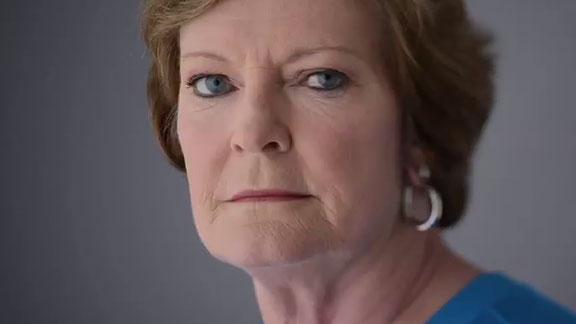Over a span of 24 hours when mid-major programs from Burlington, Vt., to Spokane, Wash., emphatically staked their claim to a place at the table in women's basketball, it was left to the coach of one of the programs that fell just short to sum things up.
A No. 14 seed out of the lightly regarded Atlantic Sun, East Tennessee State pushed third-seeded Xavier (itself so much a model of success outside a BCS conference that it's fairly lumped in with the sport's heavyweights) to the wire on the favorite's home court before falling in an up-and-down, fan-friendly 94-82 first-round game.
After 16 years on the job, Lady Bucs coach Karen Kemp sees a landscape changing.
"I won't say it's getting easier, but it's getting less difficult," Kemp said.
What we're talking here isn't revolution but instead evolution.
What began with No. 7 seed Gonzaga's win as the favored seed against 10th-seeded North Carolina on Friday night continued Saturday as 10-seed Vermont beat 7-seed Wisconsin, 12-seed Green Bay beat 5-seed Virginia, 11-seed Arkansas-Little Rock beat 6-seed Georgia Tech and 11-seed San Diego State beat 6-seed Texas.
What happened in the last 24 hours is not record breaking, or even bordering on unique beyond the fact that 12 different conferences have wins, the most since 2003. Just last season, five "mid-majors" -- for our purposes, any team outside the ACC, Big 12, Big East, Big Ten, Pac-10 and SEC -- won first-round games, including a bigger upset from Ball State beating Tennessee than anything witnessed so far this season. And all of the winners thus far this season still have a lot of work to do to become the first mid-major to reach the Sweet 16 since 2008, when George Washington and Old Dominion (a special case, given its history as a one-time national power in women's basketball) both advanced to the Greensboro Regional.
But while upsets have happened in the past, even in quantities more measurable than a trickle, what's happening this season does feel different. Maybe it feels different because the actual upsets have been accompanied by a host of close calls -- Bowling Green against Michigan State, Liberty against Kentucky, Louisiana Tech against Florida State and East Tennessee State against Xavier, among them.
And maybe because, to some extent, they don't feel much like upsets at all. Green Bay went more than 12 minutes without a field goal to close out its 69-67 win against Virginia. It didn't have two of its three best players, Celeste Hoewisch and Kayla Tetschlag, on the court at the end of the game after they fouled out. The Phoenix hardly played a perfect game. But they were still good enough to beat the Cavaliers, imperfections and all, just as they beat NCAA tournament teams Wisconsin and DePaul during the regular season.
Nobody expects Green Bay or San Diego State to give Connecticut or Stanford a game. Then again, few expect Rutgers or UCLA to give those teams much of a run, either. The best team might be as far ahead of the pack as it ever has been, and Tennessee and Stanford might still be protected from the masses by a buffer zone.
But as the overall talent pool increases, the difference between team No. 4 and team No. 50 grows increasingly more minuscule, even if all the attention given Connecticut, Brittney Griner and the top of the heap makes it tough for anyone to take notice.
Even Nebraska, the fourth No. 1 seed, is evidence of that. The Huskers might have just one loss, but the Big 12 preseason poll, in which they were picked sixth, is evidence they're here not by birthright.
"You look at the closeness of all of the low seed games so far, outside of the bottom versus the top, the middle has certainly got closer --- the last three years," said Xavier assistant Mike Neighbors, who has seen all sides on staffs at Arkansas, Colorado and Tulsa. "I think it's been three years. And I don't know why, but it's been that way."
And there's no reason to think it's temporary.
Green Bay's and Arkansas-Little Rock's wins are perhaps the most significant of all the mid-major successes this year. Both were earned by teams that received at-large bids to the NCAA tournament, the first ever awarded to a team from the Horizon League in Green Bay's case.
The selection committee isn't going to say a league's past performance has weight in considering the merits of a bubble team in any particular year, but it's difficult to come up with an argument that following up at-large bids with wins hurts a league's chances in the future. Perception is inescapable, whether it operates at the conscious or subconscious level.
What happened in the last 24 hours isn't revolutionary, which is exactly why it's part of a permanent change in the landscape of women's basketball.


